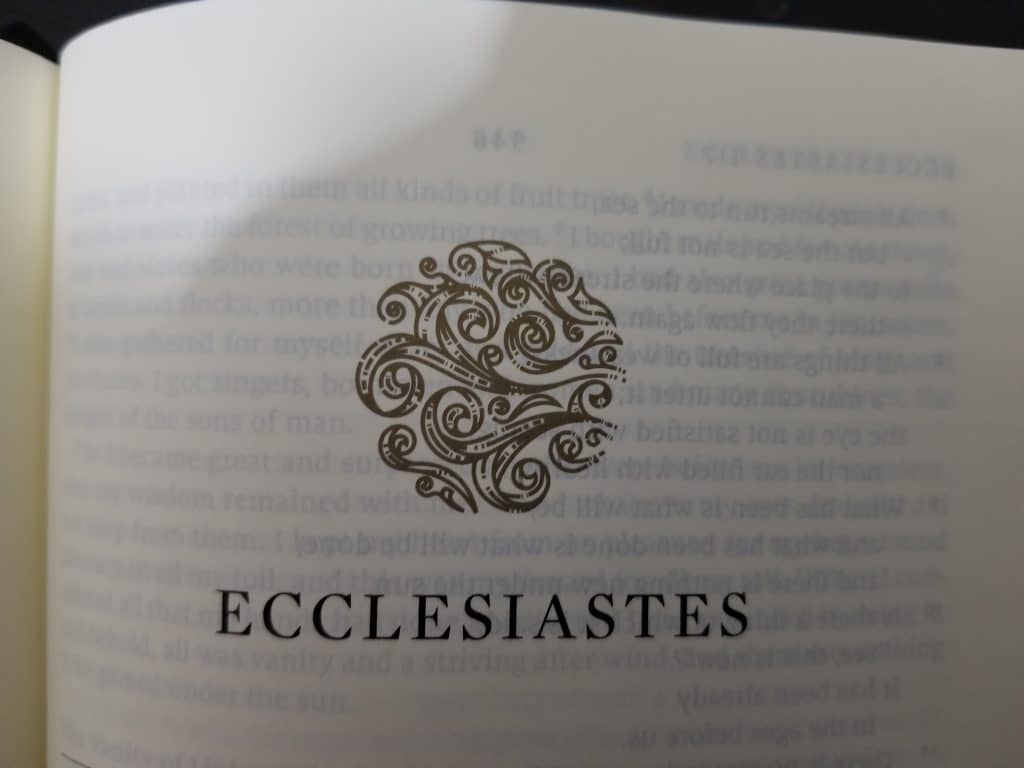⏱️ Estimated Reading Time: 7 min read
Ecclesiastes 3:9-15, “9 What gain has the worker from his toil? 10 I have seen the business that God has given to the children of man to be busy with. 11 He has made everything beautiful in its time. Also, he has put eternity into man’s heart, yet so that he cannot find out what God has done from the beginning to the end. 12 I perceived that there is nothing better for them than to be joyful and to do good as long as they live; 13 also that everyone should eat and drink and take pleasure in all his toil—this is God’s gift to man.14 I perceived that whatever God does endures forever; nothing can be added to it, nor anything taken from it. God has done it, so that people fear before him. 15 That which is, already has been; that which is to be, already has been; and God seeks what has been driven away.”
In 2014 I woke up one day burnt out, suicidal, and hating my life so much I was looking for creative ways to quit it. After months of wrestling with depression and a lot of prayer, I decided to quit my job instead. Unbeknownst to me at the time, with that single action, I would also quit an entire lifestyle and way of seeing myself and others.
The passage opens by posing a question: “What gain has the worker from his toil?” The word “toil” connotes hard labor, struggle, exertion. Essentially, the writer of Ecclesiastes is asking, “What is the point of working so hard?” I don’t think Scripture is taking a stand against hard work, per se. (Proverbs 12:11, 24; Proverbs 13:4, Proverbs 14:23.) Instead, the passage is questioning why we work ourselves to the bone.
The question rings personally in a culture like North America, where we’re obsessed with productivity, and being “results-driven” is a valuable skill. We toil to get somewhere, to achieve results we can be proud of, to make a difference, and to get ahead. We toil not just for a paycheck, but to quench a hunger for pursuit, meaning, and self-discovery.
Wanting these things is not wrong. On the other hand, expecting our work to provide these things puts us in charge of defining our meaning. As finite creatures who are bound by time and space, we make our here and now the only time and place to attain all that we desire. Is this the right perspective?
Our Right Here, Right Now Life
God is in charge of culminating and completing the beauty of each creation: “He has made everything beautiful in its time” (Eccl. 3:11). This includes our meaning and purpose.
The writer goes on to explain that God has written eternity in our hearts but that we are unable to see the whole picture. Of course we “…cannot find out what God has done from the beginning to the end (Eccl. 3:11). This is because while the beginning is here, the end is in the unseen eternity. Here lies the tension of an already/not yet life. As believers, we live today’s life with tomorrow’s promise.
When we mistakenly seek for all completion to be achieved in our life right now, we put pressure on our work it was never meant to carry. We wear down our soul. When I woke up depleted and exhausted back in 2014, I had attained much of what I wanted: a good job title, a bank account to match, a portfolio of clients who respected me, a company who backed me up. Yet somehow the meaning I desperately sought to build felt empty, like a house of cards.
Nothing brought me the satisfaction I was looking for. Because the meaning I was looking for is not of this world. And our hearts know it. We were built for more than the right here, right now life we see.
I wanted my paycheck and resume to bring meaning to my life. In the process, I made myself CEO of my life, with the main goal of finding my identity in the work of my hands. Like many, I became a workaholic, living to work. When do we draw the line between hard work and working hard for something work isn’t supposed to give us?
Our Toil Seen Through the Right Lens
Ironically, the preacher in Ecclesiastes goes on to encourage us to take pleasure in all our toil, because this is God’s gift to us (Eccl.3:13). Here is the revelatory punchline we are waiting for as believers. God means for us to enjoy the here and now for what it is; part of a trajectory. We get to experience him here and have the freedom to enjoy the gifts he gives along the way. We need not worry and work ourselves to the bone trying to make today bring us what we were meant to experience in eternity.
Beyond basic needs, we work hard for things that will enhance our sense of value. We don’t just need clothing, we want brands that will state our worth. It’s not just a roof over our heads, but an address in the right part of town that we desire. Jesus’s words slice right through our faulty narratives: “… I tell you, do not worry about your life, what you will eat or drink; or about your body, what you will wear. Is not life more than food, and the body more than clothes? Look at the birds of the air; they do not sow or reap or store away in barns, and yet your heavenly Father feeds them. Are you not much more valuable than they?” (Matthew 6:25-26). God does not see worth as the world does. Moreover, we have incalculable worth in his eyes because of what His Son did for us on the cross.
Trusting God With Our Toil because He is Sovereign
Trusting God with our work can be unsettling for our control-driven mindset in the 21st century. We want to captain our ship the way executives run a company, forgetting that our life belongs to Someone else. We can’t decipher ourselves outside of our Maker. Jen Wilkin puts it well in Women of the Word: “..there can be no true knowledge of self apart from the knowledge of God.” [1]
As the closing of our text states, “what God does endures forever; nothing can be added to it, nor anything taken from it. God has done it, so that people fear before him.” (Eccl. 3:14) . That kind of absolute sovereignty should serve both as a comfort, and an invitation for deep reverence. It doesn’t all depend on us. Our work is not the end all be all.
The last line reassures us that the end of this life is not the end of all life. There will be a reckoning: “God seeks what has been driven away” (Ecclesiastes 3:15). For further clarity, we can take a look at the NIV translation of the same verse: “God will call the past to account.” This is another clue hidden in plain sight to tell us that our story is not fully realized this side of heaven. The story continues with the Author of life, bringing to order all things.
For the better part of my adulthood, work was a relentless pursuit after meaning and fulfillment. I loaded each joy it afforded me, with heavier expectations for more. From the outside looking in, my life seemed successful. Inside, I felt entangled in an ongoing cycle of never enough. These days my life seems much smaller, simpler; and my God much bigger. I’m learning to trust the hands that were pierced for me and which holds all things together. It’s a gift that frees me to fail, grow, enjoy, and experience each moment in the presence of God.
[1] Jen Wilkin, Women of the Word (Crossway, 2014), 26.




